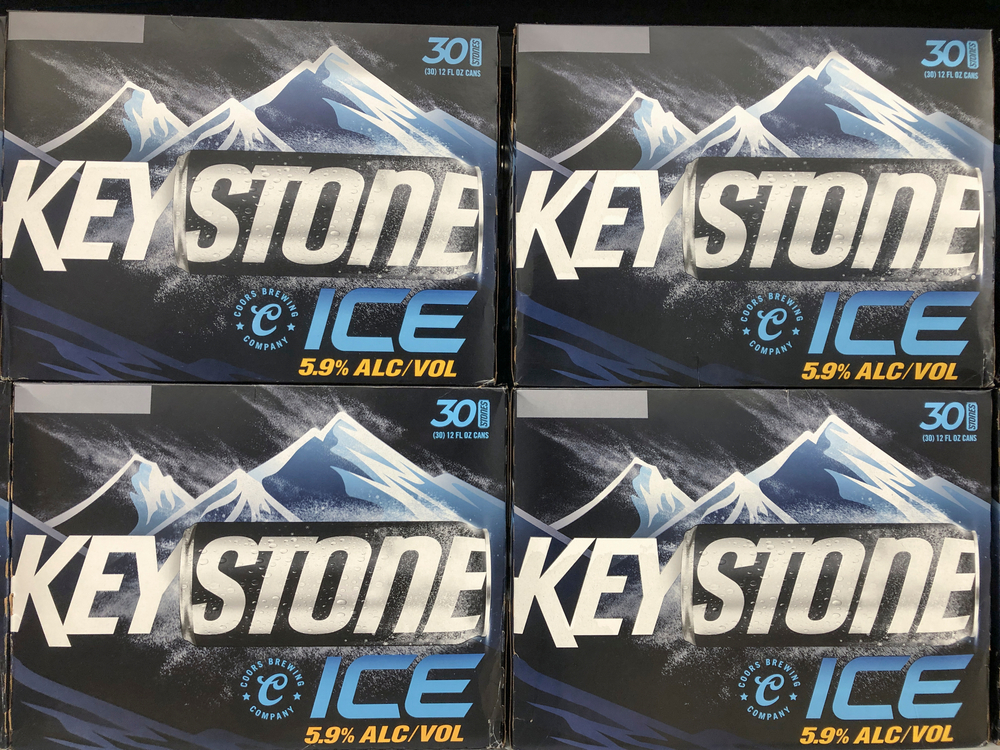Overview Trademark Battle Brewing: Stone Brewing Co. LLC v. MillerCoors LLC. Stone Brewing Co. won a trademark infringement lawsuit against MillerCoors after MillerCoors redesigned its logo for Keystone beer to emphasize the word “stone.” This post explores consumer survey research uses in this type of trademark infringement action, in which location and fame are at issue.
Stone Brewing Co., a San Diego-based craft beer manufacturer, filed a trademark infringement complaint against MillerCoors (a subsidiary of Molson Coors Beverage Company) over its rebrand of the Keystone brand of beer, which emphasized the word “stone.” Stone Brewing Co. is one of the largest craft brewers in the United States, and it claimed that the rebrand and marketing campaigns calling Keystone brand beer “a Stone” infringed on its trademark and confused consumers.
Keystone beer has a lower price than beers sold by Stone Brewing Co., and its rebrand was a shift away from imagery that showcased a mountain range to a single word: “Stone.” Stone Brewing Co. alleged that consumers experienced actual confusion at points of purchase due to the similarity of the two logos. MillerCoors argued that since Keystone was founded in 1989 and Stone in 1996, consumers already referred to Keystone beer as Stone, and that Stone Brewing Co. had merely brewed a publicity stunt. Further, MillerCoors argued that the two beers occupied different sectors of the market, since Keystone is a lower-priced beer and Stone is a craft beer.
Watered-Down Decision
Stone Brewing Co. presented survey evidence of consumer confusion to the jury, centering on research that showed visual confusion between the logos, brand association, the tagline, and spoken word, since MillerCoors claimed “Stone” was commonly an abbreviation for Keystone. The survey expert presented video evidence of consumers picking out “Stone Beer” amongst a shelf of competitors. MillerCoors offered a rebuttal by another consumer survey expert, who alleged that the methodology of the Stone Brewing Co. evidence spoke more to trademark dilution than infringement.
Unfiltered Likelihood of Confusion
Despite this, the trial court found that there was enough evidence for a reasonable jury to find trademark infringement, and the jury ultimately awarded Stone Brewing $56 million in damages, which was 25% of its requested damages. In a 24-page decision, U.S. District Judge Roger T. Benitez wrote:
“While MillerCoors argues that ‘STONE’ never appeared alone on any packaging, it cannot deny or downplay the effect of de-emphasizing the full ‘Keystone’ mark in favor of emphasizing ‘a single, heroic element,'” Judge Benitez said.
“While the marks are not ‘identical,’ they are nearly so; and while the goods are not ‘identical’ they are certainly very closely related — both being beer, which ‘share the same aisle’ and compete for the same space at the average grocery store,” he added, finding that “the court cannot say the verdict was unreasonable or against the ‘great weight’ of the evidence.”
Judge Benitez points to a number of factors in his decision that consumer research experts must consider when designing research to measure the likelihood of confusion between marks. In this case, the emphasis on the word “Stone” in the Keystone packaging and the typical proximity between the two beers in retain stores are two principal facts that an expert may consider when designing a consumer survey for a matter such as this.
The Squirt Survey Format for Measuring Likelihood of Confusion
Consumer survey research, in the form of a likelihood of confusion survey, is part of many trademark infringement actions. How those surveys are conducted may also become central to the reliability of the surveys. The survey expert in this case conducted a likelihood of confusion survey using the Squirt format. A Squirt survey was deemed appropriate, given the market proximity between the two beers at issue in this case. When using a Squirt survey, researchers should keep in mind that the third-party brands in the survey’s lineup, among other factors, should align with real-world marketplace conditions.
Conducting consumer survey research that establishes a likelihood of confusion requires careful work by consumer research experts. MMR Strategy Group conducts reliable research that has been accepted as evidence by courts, the Trademark Trial and Appeal Board, and regulators. If you are involved in a trademark infringement action, contact MMR Strategy Group for assistance conducting or rebutting a consumer survey.
